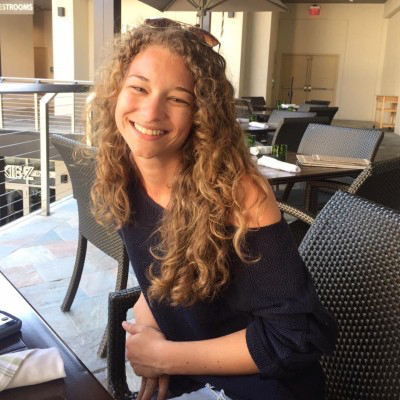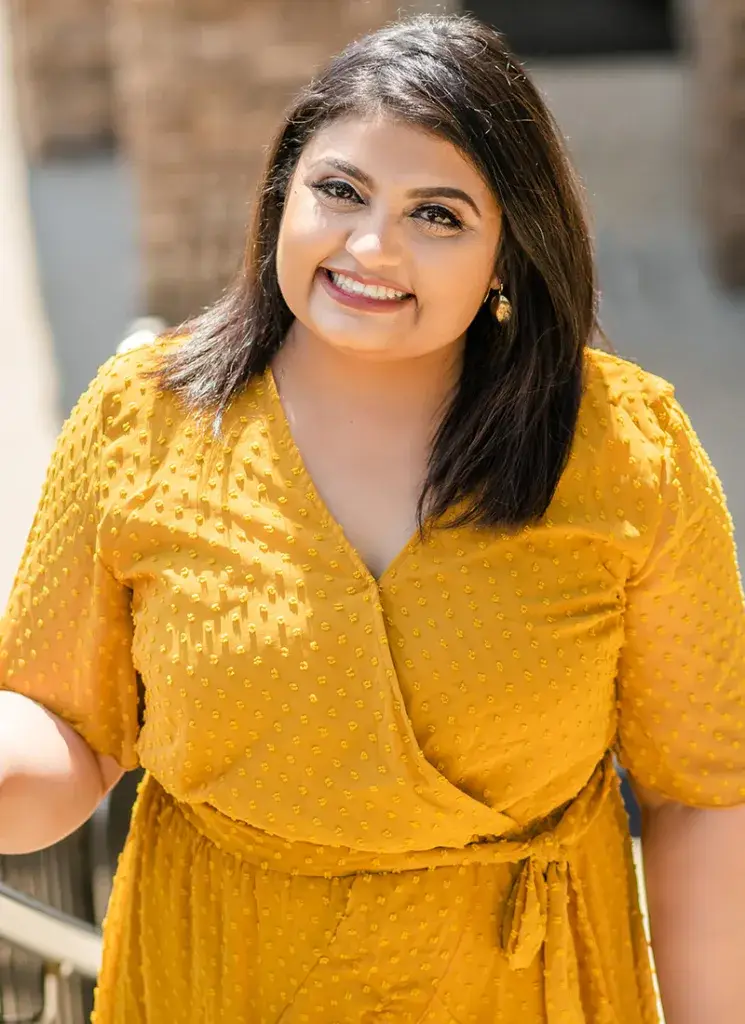At 37, Aneri Desai has spent decades on an extraordinary journey—from her roots in India to living out her American dream.
A first-generation immigrant, Aneri now lives in Columbia, South Carolina, with her family. Growing up in a middle-class Indian household, she broke barriers as the first in her family to study abroad.
After eight years as a “corporate ninja,” she launched Aneri Desai Coaching in 2021, empowering women, especially immigrants, to land dream jobs and become their own advocates.
But this level of confidence was a slow burn. For many years, Aneri considered herself an underdog, particularly in relationships. After repeated rejections for arranged marriages over her appearance, she forged her own path. “I refused to give in to society’s shallow standard of beauty,” she writes on her company’s website.
Unfortunately, this led to a toxic arranged marriage, a “drastic turn” from her plans. She fled to Chicago with two suitcases—no money and no prospects—feeling like the most “dependent, miserable, and good for nothing” person.
Aneri swore she would never feel that way again. “That was the day when I decided that I would do everything in my power so other women never feel dependent like I did,” she explains.
Today, Aneri is an inspiration to women, immigrants, and entrepreneurs alike.
A Dreamer in India
While she had a middle-class upbringing, life wasn’t always easy for Aneri growing up.
Due to financial constraints, her mother was forced to work two to three jobs at a time, leaving her to act as the primary caregiver to her little brother, who was nine years her junior.
“Raising my little brother made me hyper-independent,” Aneri says, recounting how she fed, bathed, and dressed him. “Like there was nothing a 10-year-old couldn’t do at that time.”
Today, she sees it as a highly valuable trait, using it “every single day.”
Aneri grew up in a typical Indian household, “where rules are followed, and risks are not celebrated”—which extended to her community. Her drive and curiosity did not fit the traditional mold children were supposed to follow.
“I have always been a dreamer,” she says. “What are the possibilities? What can I do? How can I make a larger impact?”
These traits made her stand out, and not in a good way. From about the age of 5 to 9, Aneri recalls being laughed at over her “wild ideas.” In class, she noticed her classmates would roll their eyes when she’d offer solutions to a project. But she carried on and did her best to focus on her studies.
The Theater Kid Emerges
Outside her coursework, Aneri had few chances to explore extracurricular activities—something her school lacked. Her sheltered upbringing limited her perspective on life’s possibilities.
“I never explored any activities other than just studying and what school taught,” she says, adding that until college, “I really didn’t know what I liked or what I was good at.”
Higher education in India posed challenges. Unlike in America, grades and rank could hinder career growth, and switching majors was nearly impossible, locking students into lifelong paths early on.
Guided by her parents, Aneri pursued computer science or engineering. Despite reservations and limited exposure, she reluctantly took the safer route.
At university, a student exchange to the U.K. gave her a first taste of the outside world—and a love for theater. She dreamed of writing screenplays or directing dramas about women’s empowerment and equality. But her parents urged her to pursue something “more employable.” Reluctantly, she complied but never found passion in fields like coding.
New Land, New Plan
As she shifted her focus back to the technical world, friends studying in the U.S. encouraged her to apply to school there. “I decided to come [to America] because I wanted to see what else is out there and what else I can do,” she explains.
In December 2010, she arrived as an international student and later earned an MBA in Information Systems. With her degree, Aneri began her corporate journey in the U.S. As an average student in India, she thought job hunting would be harder. But her first job at a Fortune 500 company proved her ideas were valuable.
Occasionally, Aneri reflects on her artist days. But she’s learned theater isn’t the only way to express herself—a revelation that came during an internship at a small marketing firm. There, she found joy in connecting with people and realized she didn’t belong on the technical side.
“I feel like art is not the only way to raise awareness,” she has found. Plating positive ideas is its own kind of activism, especially when trying to highlight the challenges immigrants and women face.
“Paths are blending and crossing, but my reason for starting this business was so much more connected to what happened after I moved here,” she says. “I didn’t realize my true potential until I actually got here.”
After eight years in corporate America, including roles like Senior Project and Hiring Manager, Aneri launched her self-named company in 2021—a path she never imagined. “I think my parents didn’t realize my true potential; even I didn’t realize my true potential until I actually got here,” she confesses.
Her parents’ unwavering financial and emotional support made her journey possible. This is what she loves about South Asian culture—parents always show up for their kids, something she hopes to do for hers. In America, she says, you can be anyone regardless of background. Compared to Indian expectations, she “actually felt free.”
“None of the things I’m doing right now, I actually learned in college,” she explains, crediting mentors at every stage. “Whatever I learned, I learned from someone a couple of steps ahead of me.”
Who’s Laughing Now?
As someone who had to adapt to an unfamiliar world, Aneri found that investing in mentors, building networks, and owning her story were fundamental to her survival and growth. After every painful lesson, she walks away with the understanding that it’s always possible to ‘rewrite your story.’
“I want every founder to know, whether [immigrant or native], I want every founder to know that your past doesn’t define your future,” she emphasizes. “You can do anything you want without being judged, without being told no; your dreams are too big.”
In America, Aneri has yet to meet a mentor or business advisor who would laugh at her grand ideas or ambitious revenue goals. Even those who once doubted her are now her “biggest cheerleaders.”
Now, when she encounters someone who thinks she dreams too big, “it’s an adrenaline rush.”
“I enjoy when people say it’s not possible, because then it gives me more drive to make it possible and show everybody.”

About the Author: Tess Danielson is a journalist and writer focusing on the intersection of technology and society.
Get on our radar for an investment.
Beta Boom invests in founders who don’t fit the traditional Silicon Valley mold.

